
Mining & Trade News
Malawi Online News
Top Stories

Energy
Mixed reactions over AfDB’s ban of coal fired power productionJanuary 06, 2021 / Brown Mdalla
Players in Malawi’s mining sector have expressed mixed reactions over African Development Bank’s (AfDB) stand against coal fired power generation.
AfDB President Akinwunmi Adesina this week called for a stop in the use of coal power across the continent and recommended a switch to renewable energy sources.
Speaking during United Nations (UN) climate talks on Monday during the Climate Change Summit (CCS) in Manhattan, India, Adesina called for a halt in operations of coal fired power plants and said AfDB will support the building of the largest solar zone in the world in the Arid Sahel belt.
He said renewable energy is sustainable and has the potential to benefit future generations.
He said in 2020 AfDB rolled out a US$500 million green baseload scheme which will assist African countries to shift from coal and fossil fuel to renewable energy.
But Minerals, Geology, Environment and Corporate Affairs Consultant Grain Malunga said the development would not affect the local coal mining industry, which is dominated by the private investors.
“AfDB’s wish to stop the use of coal as energy source will not have any impact to Malawi considering that local coal mines are not government owned, but are owned by private investors whose incomes do not go into government purse,” said Malunga.
While admitting that the coal industry is among the main atmospheric pollutants, MD for Rukuru Coal Mine Bruno kloser said while considering an outright shift to renewable sources, Malawi will still need coal in its energy mix in the short to medium term to power industries.
“Malawi just like many developing countries will still need coal for some time, while investing in alternative forms of energy like solar and wind,” said Kloser.
Ministry of Mining spokesperson Sangwani Phri said AfDB’s ban on the use of coal as energy source which was imposed in 2013 to fight global warming is not bearing fruits since the Bank is failing to assist poor countries to successfully develop to middle income status through adequate investment in renewable sources of power such as wind and solar.
He, therefore, said it could be helpful if the Bank had adequately invested in the alternative sources before the ban was affected.
“There are roughly 1.6 million people in developing countries and about 7 million in Africa with the remaining 500 million in South Asia who are keenly looking for cheaper energy sources. Local restrictions on blocking companies from mining coal will be a big blow to them, as well as their economies,” said Phiri.
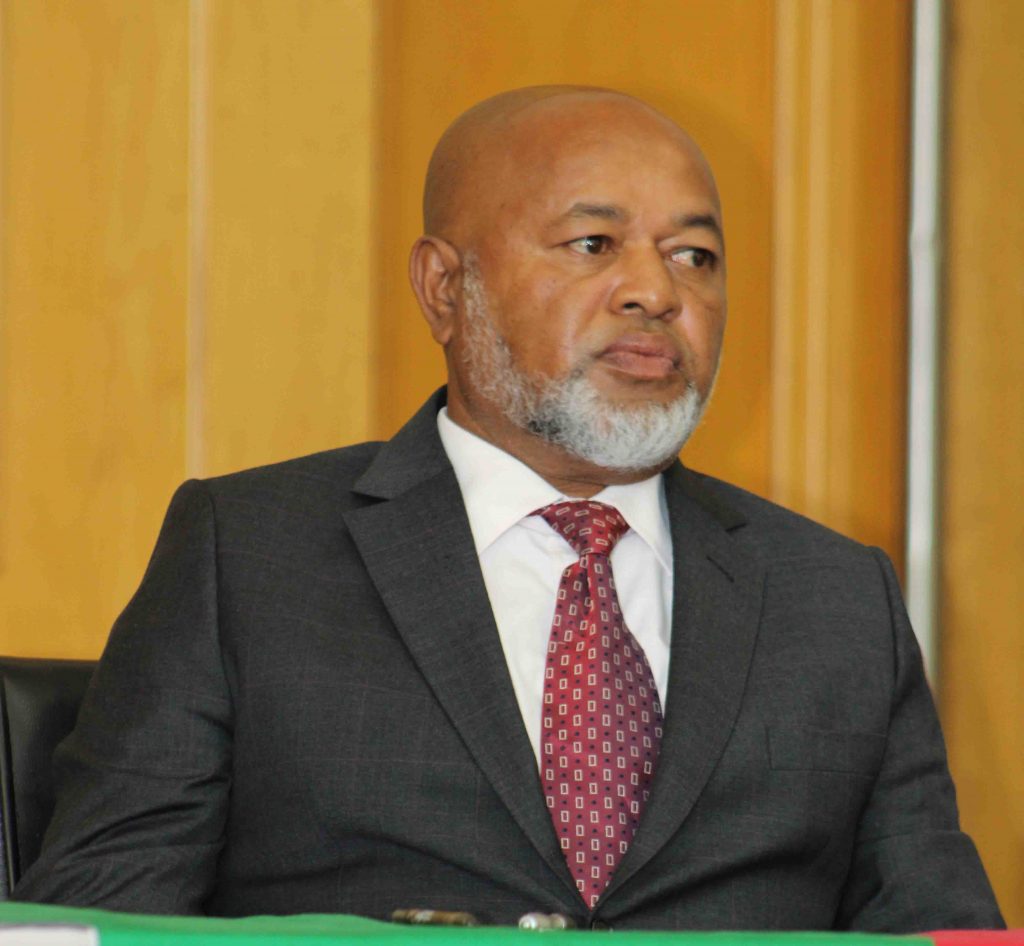
Energy
Government wants more Malawians to benefit from upstream petroleum industryDecember 17, 2020 / Wahard Betha
The oil exploration and production subsector is considered as one of the industries with the potential to uplift Malawi’s economy. Mining & Trade Review’s Wahard Betha engaged Minister of Mining Rashid Gaffar to seek clarification on topical issues in the subsector. Excerpts:
- There are concerns by some stakeholders on the size of Oil and Gas exploration blocks saying they are too big, and that they need to be re-demarcated. What is the government’s position? Will you demarcate them?
Firstly, let me acknowledge that the Blocks are indeed big. However, this is the case because when the Blocks were being demarcated in 2009, the country did not have a substantial bank of data on the prospects of Oil and Gas. As a result of this, Malawi had to demarcate large Blocks which would help prospecting companies to study Geology of the country at large whilst trying to identify potential areas for Oil and Gas discovery.
Now that there has been exploration work going on with acquisition of some geological information and data, Government will consider re-demarcating the Blocks. You might also wish to know that during consultation meetings for review of Petroleum (Exploration and Production) Act of 1983, such issues were being raised and best international practices were being proposed by key stakeholders to be adopted in order to have sizable Blocks rather than what we currently have.
Should Government wish to re-demarcate the Blocks today, the process will only be applicable to the vacant Blocks and not those with active licences.
2. Following the relinquishment of oil and gas blocks 1 and 6, when should we expect the ministry to release advertisements of the blocks for investors to acquire the tenements?
You might be aware that the Ministry is working on revision and formulation of a number legal and regulatory frameworks. One of the key instruments is the Petroleum Exploration and Production Policy which had already gone through a number of review processes. It is the wish of Government to call for interested investors to make applications once the Policy is approved.
There are a number of issues that are outlined in the draft Policy designed to benefit local Malawians which Government is willing to implement. In this regard it is considered very important to wait for approval of the Policy which is expected to be done very soon then advertisement of the Blocks will be made.
3. I remember under the previous administration, there was an arrangement to review the Petroleum Sharing Agreement signed with Rak Gas because the existing agreement did not present a win-win situation between the investor and the nation. What is the position of the current administration? Are you going ahead with the review position?
It is the Government’s wish that all mining and petroleum contracts are anchored at the interests of Malawians at large. Re-negotiation of the signed Petroleum Sharing Agreement (PSA) started some years ago but it was put on hold pending finalisation of the draft model PSA. This was done so to ensure that the outcome of the re-negotiation should reflect the interests of Malawians as captured in the model PSA.
Currently, there is a draft model Petroleum Sharing Agreement (PSA) which the Ministry is working on with the Ministry of Justice and Constitutional Affairs to have it finalised. Once this is completed, Government will fast-track re-negotiation of all contracts that are deemed not properly signed.
4. There was also an arrangement to develop a standard petroleum sharing agreement for Malawi. How far have you gone with the process?
As alluded to in the above statement, there is a draft model PSA which was developed in consultation with the Ministry of Justice and Constitutional Affairs. There are also international development partners that are helping to review the draft model PSA to provide relevant expertise from international best practice perspective. Currently, the Ministry has planned a number of activities to have the model PSA finalised as soon as possible.
5. All in all, what is the position of the new government on oil exploration? Do you support oil exploration ventures?
The Tonse Government has total support for Oil and Gas exploration. As you are aware that currently, there is no any Oil and Gas discovery made. However, the sector has huge potential to boost economic status of the country if well managed when discovery of deposits of economic value is made. This is one of the sectors that many Malawians can be actively involved in their socio-economic activities ranging from businesses to employment.
Considering all economic benefits that the country can realise from the sector, Government is rendering all support it can in order to create an enabling environment for investment of both multinational Oil and Gas companies and local entrepreneurs.
6. Please provide any information you feel is important to enlighten Malawians on the reforms that government is undertaking in the upstream petroleum subsector. You may also provide any information that shades more light on the issue of oil prospecting in Malawi.
In preparation for the future Oil and Gas discoveries, Government is in support of the major reform areas in the sector. These include review of the Petroleum (Exploration and Production) Act of 1983, formulation of the Petroleum Exploration and Production Policy, formulation of model PSA and review of relevant laws such as Taxation Act to create a conducive environment for investors whilst ensuring maximum benefits to Malawians.
Malawians may also wish to note that the companies that have been operating in the country have been reporting good progress in terms of the Geology of the country in relation to Oil and Gas occurrence. There are target areas with high potentials which have been identified for further studies. Such developments are giving hope in search for Oil and Gas from the time the country did not have such information and data to present. Government is willing to support the investors until such a time breakthrough is achieved in the upstream petroleum sector.
Let all Malawians be assured that the Ministry is striving hard to have up to date legal and regulatory frameworks which aim at ensuring that Malawians are involved in the Oil and Gas cycle and they are benefiting from activities happening in the sector.
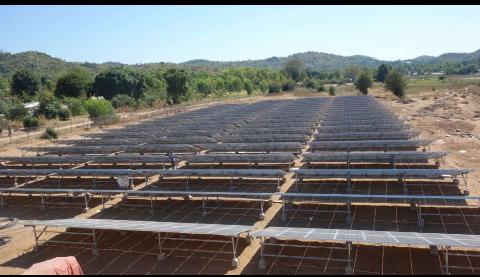
Energy
Likoma Island glows under solar power supplyDecember 02, 2020 / Tawonga Nyirenda Mayuni
The construction of a solar power plant to supply Likoma Island with 24 hours of uninterrupted electricity has earned the Electricity Generation Company (EGENCO) praises.
Before the solar energy supply, Likoma and Chizumulu Islands were powered by 14-hour long diesel generated electricity.
Speaking during the opening ceremony of the power plant at Likoma, Traditional Authority (TA) Mkumbwa III thanked EGENCO saying that the new electricity supply plant will go a long away in developing Likoma Island.
He stressed the need for business people and even the government to invest in Likoma through the construction of hotels and other businesses so that the island develops through tourism.
CEO for EGENCO William Liabunya said that the power utility constructed the solar powered plant to do away with the high environmental risk associated with diesel generated electricity as well as to avert the danger of using and storing diesel.
“It was costly to bring diesel to the Island. The logistics of getting the diesel in drums, into a ship then offloading and floating them to land. It was very costly and dangerous.” he said
Liabunya remarked that the coming in of the 24 hours’ solar electricity has improved the socio-economic life of the people of the two islands while ENGECO has reduced the costs of managing diesel engines.
ENGECO was using 17 million Kwacha every month to supply electricity to the islands for 14 hours only.
EGENCO has invested K3.2 billion in the solar project but Liabunya said that the project is worth the investment as the power plant will operate for many years.
Energy Minister Newton Kambala said that his ministry is commitment to supply energy to the nation and that he was very happy to supply Likoma Island with 1000 kilowatts while Chizumulu Island has received 300 killowatts.
Kambala acknowledged the developments activities that the power supply project has triggered for the islands and has since promised to liaise with the Ministries of Public Works and Transport, Tourism, Education and Health to coordinate on development activities for the islands.
He said Likoma Island is a beautiful place that can bring a lot of revenue to the country through tourism and hence the government will ensure that it develops.
“This is a very good place where we can attract a lot of tourists if we can invest in proper infrastructure in terms of hotels and good roads, this can bring into the country the much needed forex,” he said
EGENCO has so far pleaded with the people of Likoma to take care of the power plant and not to vandalize the panels in order to ensure a sustainable power supply. TA Mkumbwa has since said that the Chiefs of the area will see to it that the power plant is safeguarded.
The 3.2 billion project started in August 2019 and was expected to end in July 2020 but was delayed by logistical complications related to the Covid-19 outbreak which restricted some technical teams from coming to the country. The solar plant was constructed by NR Electricals, a Chinese Contactor.
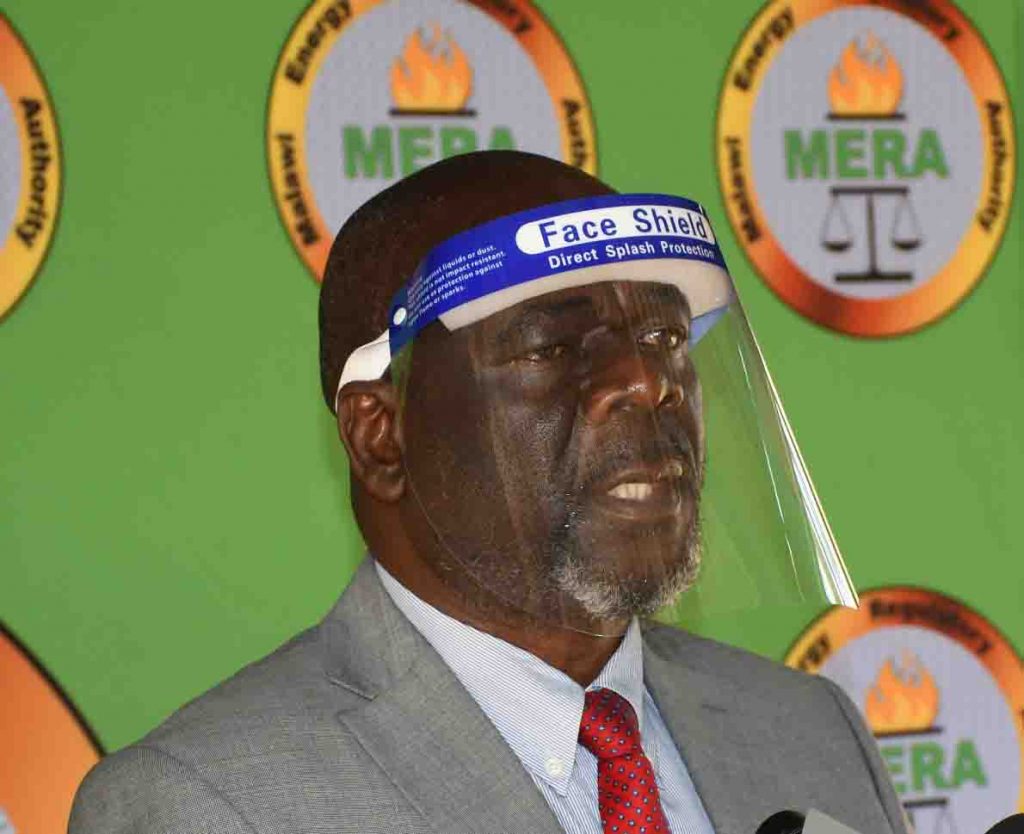
Energy
Malawi advances drive to scale up energy productionNovember 29, 2020 / Noel Mkwaila
Minister of Energy Newton Kambala says the Malawi government is working on scaling up energy production through a diversification drive from overdependence on hydropower to embrace various sources of energy.
The Minister said this at a press conference held Saturday by the Ministry in conjunction with power utilities the Electricity Supply Corporation of Malawi (Escom) and Electricity Generation Company (EGENCO) to give an update on the country’s efforts to ensure adequate supply of electricity across the nation.
The minister clarified that government has plans to connect people without electricity to the national grid using power generated through hydro, fuel, solar, gas among other sources of energy.
“The energy situation is currently progressing well since when the grid is fully loaded, it only remains with a deficit of about 50 MW,” Kambala said.
He said as the demand for electricity continues to grow, government is coming up with more interventions to deal with the demand and take care of any inefficiencies.
He said there is progress on the construction of a coal fired plant at Kammwamba in Neno, which is meant to give the country about 300 Megawatts of electricity and Mpatamanga Hydropower Plant that is to provide 350 Megawatts.
“Once done, these projects have the capacity to generate in excess of a gigawatt,” he said stressing; “with this, we will see more investors coming to the country.”
Kambala said that his ministry has plans to decentralize the Department of Energy’s activities for more efficiency on the ground.
To achieve an efficient decentralised structure, the minister said that there are plans to recruit energy officers who will be placed in each and every district of the country with an aim of meeting goals of Malawi Rural Electrification Program (MAREP).
“These officers will fill an existing void where the rural areas do not have qualified personnel responsible for determining where to connect electricity,” said the minister assuring the nation of accountability and transparency in the process of accessing electricity.
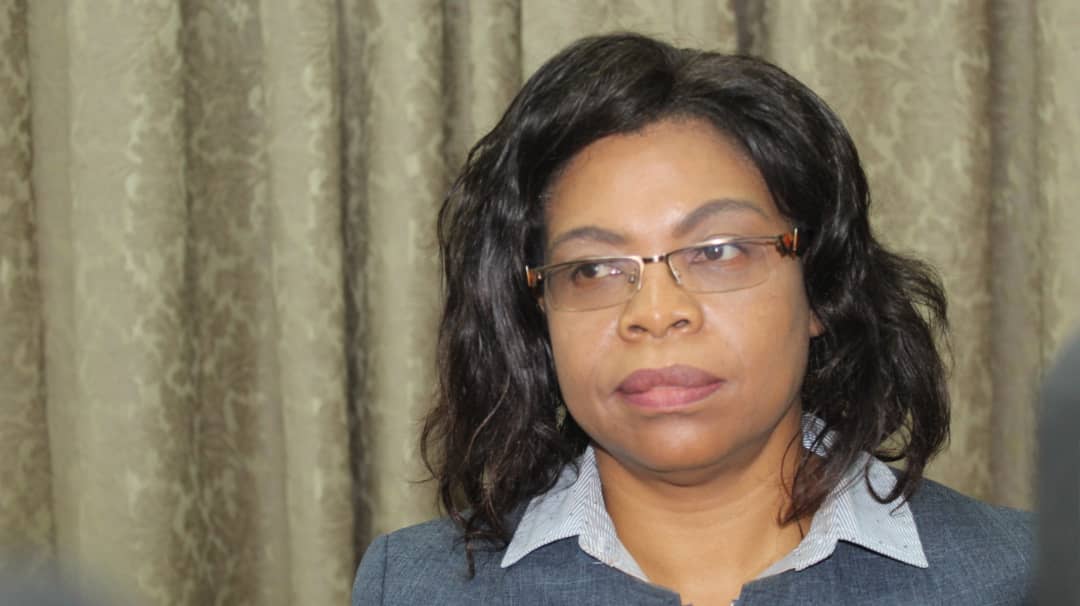
Energy
Procurement process advances for Mpatamanga hydro power plant investorNovember 17, 2020 / Noel Mkwaila
The Public Private Partnership Commission (PPPC) says construction of the 350 MW Mpatamanga hydro-power plant will start mid-next year.
PPPC Acting Executive Director Audrey Mwala said procurement of a prospective investor for the new hydro-power plant on Malawi’s biggest and longest river, the Shire, is currently underway.
“We rolled out the procurement exercise mid-2020 and we are hopeful that everything will be completed by the end of the year,” Mwala said.
She explained that upon completion of the procurement process, the selected investor will have six months to identify a contractor with expertise and capacity to construct the power plant as planned.
Mwala said PPPC is committed to speeding up the processes in an effort the rid the country of the intermittent power outages it continuously faces and boost its trade and industrial sectors.
Construction of the Mpatamanga power plant site is expected to last for not more than four and a half years.

Energy
Malawi promotes energy production from wasteNovember 12, 2020 / Bester Kayaye
Following the launch of a national cleanup campaign by President Lazarus McCarthy Chakwera, the Ministry of Energy plans to boost energy production in the country by promoting recycling of wastes into various forms of energy.
The energy ministry says the launch will help put in place waste management systems that support use of biomass for household and industrial productions.
Spokesperson for the Ministry, Saidi Banda, says the ministry is in the process of reviewing its Strategic Plan to reflect new developments in line with the Energy Policy 2018 and the Malawi Renewable Energy Strategy 2017.
“The ministry will facilitate processes to remove taxes on waste-to-energy production equipment. It will also facilitate trainings for small entrepreneurs and youth groups among others,” he explains adding that the initiative gives Malawians an opportunity to convert garbage from landfills into raw material for renewable energy like biogas, electricity and briquettes.
Banda says the ministry is currently encouraging companies to start generating power from waste in an effort to reduce the amount of waste the country produces.
A UN report reveals that one-third of the food produced world-wide every year is lost or wasted. In Malawi, it is reported that fresh food waste is a major health and urban management problem, especially in open-air markets which produce a great deal of waste.
Meanwhile, as the U.N.’s 2030 Agenda for Sustainable Development has set targets to reduce the amount of food waste by half, Blantyre City Council transports organic wastes like over-ripe tomatoes, banana peels and cabbage leaves which are generated each day from the city’s open markets to turn it into organic compost which is later sold to farmers and gardeners.
President Chakwera introduced the National Cleanup Day campaign with an aim of curbing littering and to promoting cleanliness and safe environments.

Energy
Sunshine to power Malawi homes and industriesNovember 11, 2020 / Noel Mkwaila
Persistent power blackouts due to Malawi’s insufficient electricity supply, has compelled government to diversify energy sources from hydro-power to include solar, wind energy, coal fired energy sources and the power interconnection to the Southern African Power Pool (SAPP).
Currently, Malawi generates about 250MW of hydro power while the suppressed demand is 351MW. The unmet electricity need does not account for the majority of Malawians who are not yet connected to the electricity grid.
53 per cent of Malawi’s population live below the poverty line and just 10 percent of the country is connected to the national grid with heavy load shedding schedules.
Intermittent power supply has significantly reduced the country’s industrial production rate.
According to Saidi Banda, spokesperson for the Ministry of Energy, several companies are set to start complimenting the hydro power supply by producing and supplying solar energy across the country.
“JCM is currently planting equipment in Salima and will serve the country with almost 70 megawatts of solar energy,” says Banda adding that another company is setting up operations in Nkhotakota while others who have also signed power purchase agreements with government will be rolling out in other areas soon.
Meanwhile, EGENCO, a body assigned to be producing electricity in the country, has recently switched on solar energy to power Likoma and Chizumulu Islands on Lake Malawi.
According to the 2019 World Bank report, Malawi has abundant untapped solar potential, with an average of 3,000 hours of sunshine per year.
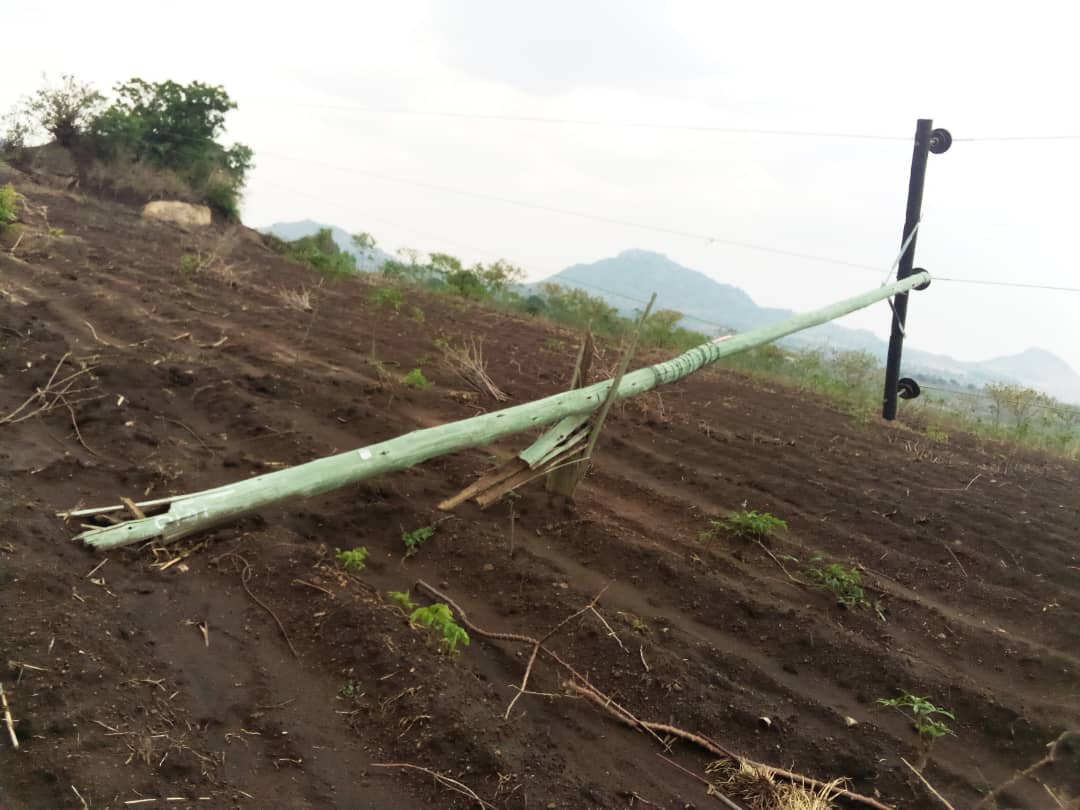
Energy
Escom advised against use of untreated poles for high voltage transmission linesOctober 21, 2020 / Tawina Maluwa
Renewable Energy Industries Association of Malawi (REIAMA) has advised the Electricity Supply Corporation of Malawi (ESCOM) to avoid the use of untreated poles for high voltage transmission lines.
REIAMA President Andrew Nkoloma said in a Press Release that his association has observed that some poles used under Rural Electrification projects are not to the acceptable standard to carry high voltage power lines as they are not well treated and strong enough to carry high voltage (HV) lines.
Nkoloma cited an incident that happened in Chiradzulu at Malele village, T/A Kadwere where a fallen pole carrying 11kV lines to Nsoni area was spotted with lines almost blocking the road. He said a closer look at the pole revealed that it was eaten up by termites all inside but, apparently, the line is less than five years old.
“REIAMA has found this hazardous to the general public and immediate attention needs to be taken by ESCOM and any relevant authority,” he said.
Nkoloma urged players in the industry to urgently address the issue of substandard and not well treated poles, which was also raised by Minister of Energy Newton Kambala when he visited RAIPLY Limited.
He said: “REIAMA suggests that inspectors from Malawi Bureau of Standards and Malawi Energy Regulatory Authority (MERA) visit timber processing plants and certify the wood treatment processes for HV poles. Existing power lines must be inspected and certified fit to continue carrying HV lines.”
“Any sub-standard and not properly treated poles in use must be replaced, every production batch of locally treated poles must be inspected and certified, and finally a toll-free phone number must be made available to the general public for reporting any such faults.”
Renewable Energy Industries Association of Malawi (REIAMA) is a membership association of players in Renewable Energy Industry in Malawi. One of their mandate is to provide a conducive environment for businesses and all players plying their trade in the technologies while at the same time protecting the consumer and general public.
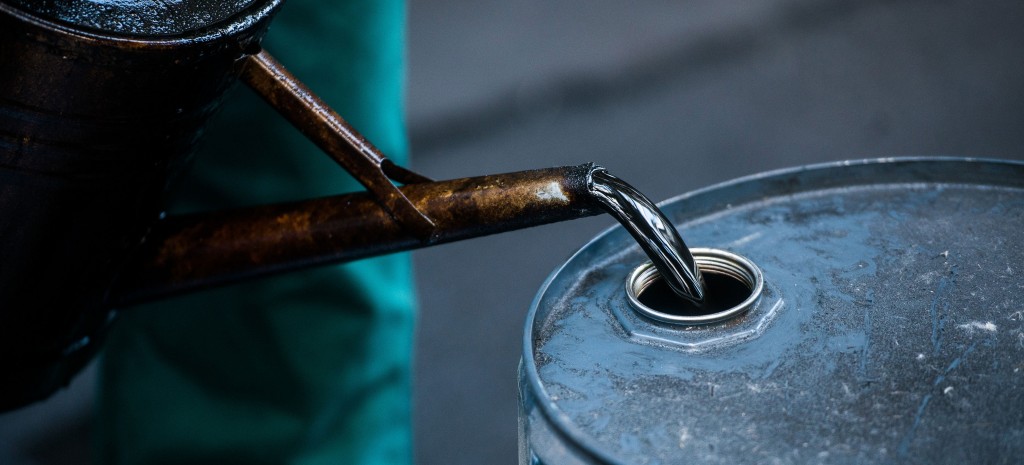
Energy
No natural oil in Limbe says Malawi GovernmentOctober 20, 2020 / Bester Kayaye
Malawi’s Ministry of Mining has dismissed claims on social media that there is occurrence of natural crude oil (petroleum) in Limbe, Blantyre.
A video went viral on the social media alluding to the occurrence of natural crude oil in the area that lies approximately 90 metres to the West of Limbe River and about 170 metres to the East of Limbe Free Market.
This prompted the Ministry of Mining through its Departments of Geological Survey and Mines to send a technical team of experts to the site on a fact finding mission.
Principal Secretary in the Ministry Dr. Joseph Mkandawire said the study revealed that the substance was a refined petroleum product, specifically, diesel.
Mkandawire explained the area is underlain by basement metamorphic rocks assigned to charnockitic granulites which are overlain by younger unconsolidated sediments.
He said; “The unconsolidated sediments were observed on site. To understand the sediments, pitting and augering was done. Water and soil samples were collected and analysed by the Malawi Bureau of Standards (MBS).”
“The pit profile and physiography indicated a gentle slope towards Limbe river; two soil horizons one rich in humus (top soil layer) and the other high in iron content (sub-soil layer). Oil contamination was more visible on the top soil layer and diminishing with depth. If oil had a natural source and pathway, the contamination would be increasing with depth.”
He, therefore, said the results from the standard sample analytical tests such as Distillation, Density, Flash Point, Pour Point, Grease and Oil; conducted in accordance with Standard Test Methods from MBS clearly indicated that the sample fluid collected from the hole at the alleged site was processed diesel and not natural crude oil.
“The results provide sufficient evidence that some form of anthropogenic disposal of diesel took place in the area and members of the general public are therefore advised to desist from using an analysed spillage to avoid accidents.”
Blantyre City Council reportedly relocated vendors to the area for vending purposes. Land preparation for construction of the vending structures unearthed the alleged oil occurrence.































